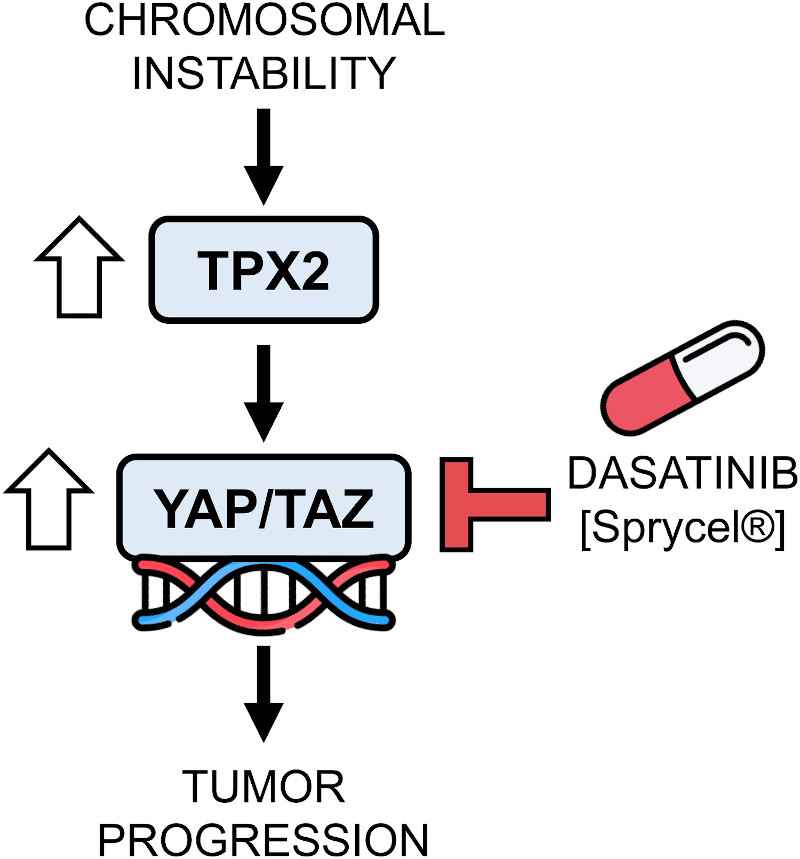The Cell Cycle and Cancer Biomarkers research group, led by Dr. Guillermo de Cárcer, from the Instituto de Investigaciones Biomédicas Sols-Morreale, IIBM (CSIC-UAM) describes a new therapeutic strategy for breast cancer with high chromosomal instability. This study is the result of a multidisciplinary collaboration between the pharmaceutical company Eli Lilly in Madrid, the MD Anderson Cancer Center Hospital in Madrid and the CSIC as an academic institution. This work has been financed mainly by the Fundación Científica de la Asociación Española Contra el Cáncer. The cover image shows on the left: Dr. Guillermo de Cárcer and Dr. Natalia Sanz (IIBM-CSIC; on the right at the top: Dr. Gema Moreno-Bueno (MD Anderson / IIBM / UAM); on the right at the bottom: Dr. Carlos Marugán and Dr. María José Lallena (Eli Lilly).
One of the characteristics of the most aggressive tumors is chromosomal instability, an alteration present in tumor cells that causes them to have an aberrant number of chromosomes. Chromosomal instability gives tumors a high adaptive capacity, making them resistant to therapies and promoting metastasis. Although previous attempts have been made to identify specific therapies to target tumors with high chromosomal instability, the results have never been entirely satisfactory. In this sense, Dr. de Cárcer's team has proposed an experimental alternative, focusing exclusively on some genes that are closely related to chromosomal instability and screening drugs with the aim of finding new therapeutic strategies for the treatment of breast cancer tumor cells with high chromosomal instability. 

The researchers found that tumor cells with high expression of the TPX2 gene, a biomarker characteristic of cells with chromosomal instability, become sensitive to the action of the drug dasatinib. This is achieved by activation of the YAP/TAZ genes that are involved in tumor proliferation and progression. Dasatinib is a drug especially indicated for a specific type of leukemias, therefore it is already in clinical practice and facilitates that it can be used to treat other types of cancer (drug repositioning). The results of this work suggest that the most aggressive breast tumors showing high activation of the TPX2 gene could benefit from treatment with dasatinib, in case there is no response to standard therapies. This research represents a breakthrough in the search for new treatment options for breast cancer patients, although trials with preclinical models are still needed.
The research article can be downloaded HERE